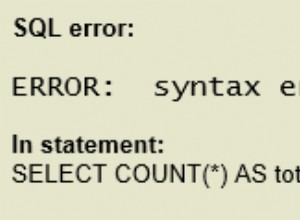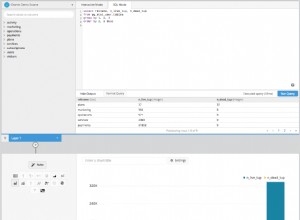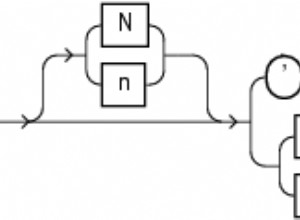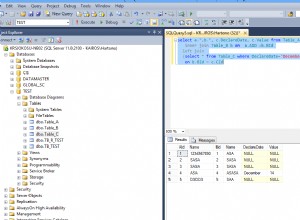Perché stai usando PL/SQL per questo? Da quello che hai detto che stai facendo un po' di matematica, perché non farlo semplicemente in SQL? Questo sarà possibile anche con una combinazione di INSTR e SUBSTR, ma è più carino da vedere con REGEXP_SUBSTR.
select to_number(regexp_substr(ip, '[^.]+', 1, 1)) * power(2,24)
+ to_number(regexp_substr(ip, '[^.]+', 1, 2)) * power(2,16)
+ to_number(regexp_substr(ip, '[^.]+', 1, 3)) * power(2,8)
+ to_number(regexp_substr(ip, '[^.]+', 1, 4))
, icb.*
, icl.*
from ip_city_block icb
join ip_city_location icl
on icl.locid = icb.locid
where to_number(regexp_substr(ip, '[^.]+', 1, 1)) * power(2,24)
+ to_number(regexp_substr(ip, '[^.]+', 1, 2)) * power(2,16)
+ to_number(regexp_substr(ip, '[^.]+', 1, 3)) * power(2,8)
+ to_number(regexp_substr(ip, '[^.]+', 1, 4))
between icb.startipnum and icb.endipnum
Dimostrazione SQL Fiddle dell'output REGEXP_SUBSTR
Se hai per farlo in PL/SQL dovresti fare due cose:
- Vedi se puoi dichiarare la tua funzione come deterministico .
- Prova a sfruttare sub -interroga la memorizzazione nella cache .
Sembra che tu ne stia già facendo 2, ma puoi provare ad estenderlo utilizzando una clausola WITH:
with the_ip as ( select get_ip_integer('74.253.103.98') as ip from dual )
select the_ip.ip
, icb.*
, icl.*
from ip_city_block icb
join ip_city_location icl
on icl.locid = icb.locid
join the_ip
on the_ip.ip between icb.startipnum and icb.endipnum




